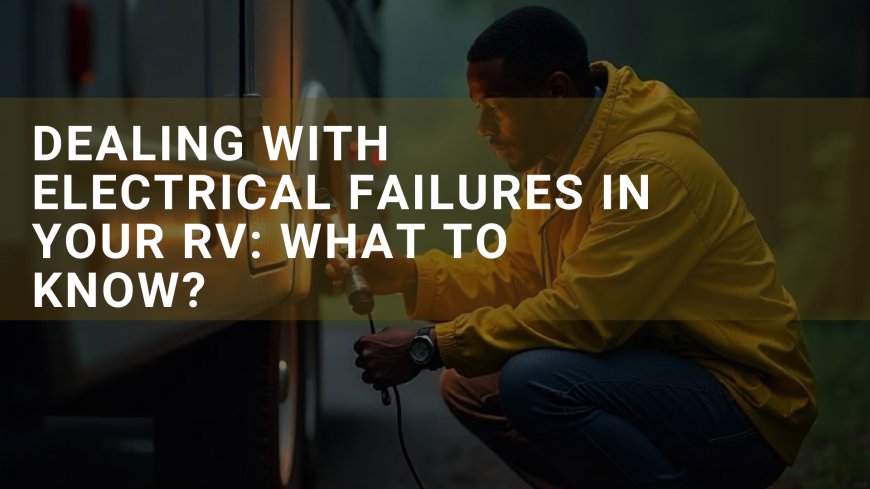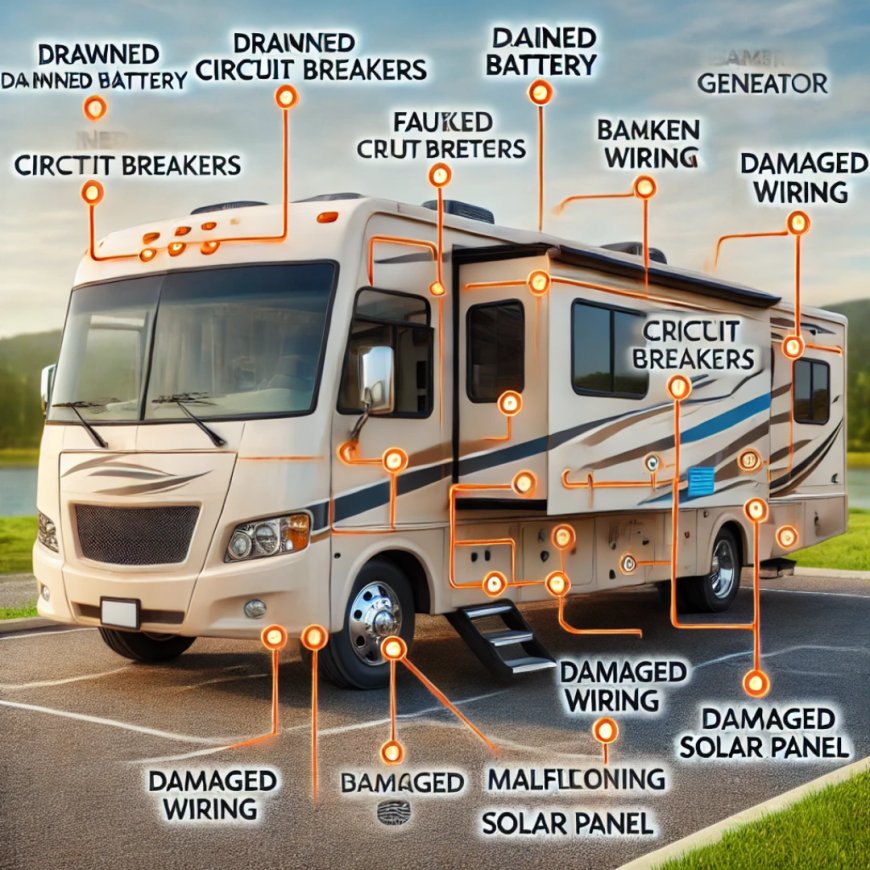Dealing with Electrical Failures in Your RV: What to Know
Learn practical tips to identify and fix common electrical problems in your RV, from blown fuses to battery issues, ensuring a smooth and worry-free camping adventure.

RV camping is a fun way to travel, connect with nature, and enjoy the comforts of home on the go. It’s perfect for exploring the open road with your family and making lasting memories. Unfortunately, electrical problems in your RV can disrupt your journey and create unexpected challenges.
Some common electrical problems include short circuits, blown fuses, or issues with the battery, such as it not holding a charge. Overloaded circuits and faulty inverters can also cause appliances to stop working. Additionally, faulty inverters, grounding problems, and corroded connections are common reasons for power failure. In this blog, we will skim through some common electrical problems in detail and discuss how RV repair Rocklin helps deal with them.
Common Electrical Failures in RVs

-
Blown Fuses: Fuses protect the electrical system from overloading. A blown fuse can cause lights or specific appliances to stop working.
-
Solution: Check the fuse box to identify and replace the blown fuse. Always ensure that a fuse is used with the correct amperage.
-
Battery Problems: RV batteries can lose charge due to age, improper maintenance, or parasitic drains (appliances drawing power even when off).
-
Solution: Regularly inspect and clean battery terminals, ensure proper charging, and disconnect batteries during long storage periods.
-
Short Circuits: Faulty wiring, damaged cords, or overloaded circuits can cause short circuits, which can lead to tripped breakers or power loss.
-
Solution: Locate the source of the short circuit by inspecting wires and plugs. Repair or replace damaged components when it is needed.
-
Faulty Inverters or Converters: An inverter converts DC power to AC, while a converter does the opposite. Faulty units can disrupt power flow to appliances.
-
Solution: Test the unit with a multimeter and replace it if necessary. Always buy a compatible replacement.
-
Grounding Issues: Proper grounding is essential for safe and efficient electrical system operation. Poor grounding can lead to electrical shocks and malfunctioning of appliances. This increases the risk of electrical hazards such as short circuits or fires.
-
Solution: Test the grounding with a tester and ensure all connections are secure and rust-free.
-
Corroded or Loose Connections: Moisture or age can cause wires and terminals to corrode, leading to intermittent power loss.
-
Solution: Regularly inspect connections for corrosion. Clean them using a wire brush and apply dielectric grease to prevent further rusting.
Preventive Measures
Preventing electrical failures is often easier than fixing them. To avoid similar issues in your RV’s plumbing system, check out how to prevent common RV plumbing issues for helpful tips. Here are some tips to keep your RV’s electrical system in good shape:
-
Regular Maintenance: Inspect the electrical system periodically for loose or damaged wires, corroded connections, and aging components.
-
Use a Surge Protector: Protect your RV from power surges when connecting to shore power. A surge protector can prevent serious damage to the system.
-
Monitor Battery Health: Check battery water levels (if applicable) and maintain a proper charge to extend battery life.
-
Avoid Overloading Circuits: Use appliances within the recommended power limits to prevent tripping breakers or damaging components.
-
Store Safely: Disconnect batteries and cover external power connections during long-term storage to reduce wear and tear.
Final Insights
Electrical failures in your RV can be inconvenient, but with proper knowledge and preparation, you can handle most issues confidently. Regular maintenance and careful use of appliances will help ensure an enjoyable journey. Therefore, by understanding your RV’s electrical system and implementing preventive measures, you can focus and explore the open road and create lasting memories.
What's Your Reaction?























